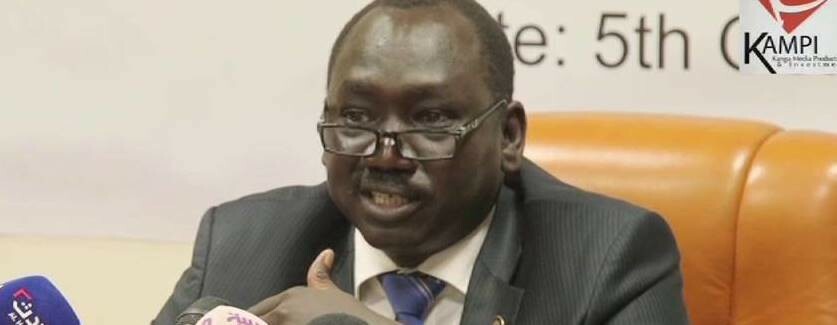In the context of modernization, the imperative of poverty eradication, gender equality, and cultural harmony emerges as central to driving societal change and socioeconomic progress.
In Northern Bahr el Ghazal State, despite enjoying relative peace and stability over the past two decades, there has been a noticeable absence of tangible socioeconomic advancement. Northern Bahr el Ghazal was recently identified as the poorest state in South Sudan.
Against this backdrop, the author presents a compelling argument for the University of Northern Bahr el Ghazal to catalyze change and socioeconomic development in the state and across South Sudan. The article outlines how the university can actively combat poverty, promote gender equity, and foster cultural adaptation by aligning indigenous traditions with modernization efforts.
As of 2022, the global female population ratio, as reported by the United Nations, has almost reached parity with males, standing at 50.24% compared to 49.76%. This underscores the importance of implementing laws and policies that promote gender equality, which serves as a crucial tool in poverty eradication efforts. This imperative is particularly pressing in South Sudan, where the female population was estimated at 50.5%, slightly outnumbering males at 49.5% in the same year.
Despite being categorized as the poorest state in South Sudan, Northern Bahr el Ghazal’s significance cannot be overlooked, particularly due to its status as the second most populous state in the country as of 2023. This places the state at the forefront of governmental priorities, especially concerning girl child education.
During a recent ceremony celebrating Master’s and PhD graduates on March 24, 2024, the Aweil Graduates Association (AGA) revealed concerning statistics. Out of 747 graduates registered with the organization, a mere 6% were females.
This gender disparity was further highlighted during a separate ceremony to which the author was invited as a guest of honour by the Aweil Students Association at Bahr el Ghazal University (ASABU). Only four females were among the hundreds of graduates over the past four years. Such stark statistics underscore a pressing issue in higher education, particularly the disproportionate dropout rates among females compared to males.
Several speakers at the AGA function emphasized the importance of focusing on elevating the Technical Medical Sciences College into a comprehensive university with diverse colleges beyond those specializing in sciences. This underscores the urgency for the Ministry of Higher Education, Science, and Technology to take immediate action to tackle the alarming rate of female dropout.
The inception of the University of Northern Bahr el Ghazal (UNB) traces back to a pivotal moment following the signing of the Comprehensive Peace Agreement (CPA) in 2005. During a tour visit to Southern Sudan, President Bashir, prompted by the author’s suggestion, committed to establishing a university in Northern Bahr el Ghazal. Subsequently, in May of the same year, a convoy carrying essential food items and senior state officials, including the current Vice President of the Republic, heralded a new era for the region.
However, bureaucratic hurdles delayed the operationalization of this commitment until 2010, when Prof. John Aporuot Akec was appointed to establish the university.
Despite initial strides, subsequent changes in governmental policies led to setbacks for UNB. Prof. Peter Adwok Nyaba’s policy reforms relegated UNB to a mere project, triggering resistance from the Aweil community. Attempts to reverse this decision, including engagements with successive Ministers of Higher Education, proved futile. Instead, UNB was further downgraded to polytechnic colleges, exacerbating the gender disparity in higher education.
Amid mounting challenges, the recent announcement by Hon. Gabriel Changson Chang, the Minister of Higher Education, Science, and Technology, regarding the conversion of polytechnic colleges to technical colleges, raises concerns. Drawing parallels with the Massachusetts Institute of Technology (MIT) to justify this decision lacks relevance and fails to address the pressing need for comprehensive reforms at UNB. The emphasis on specialized medical sciences overlooks the broader socioeconomic challenges, including gender empowerment and cultural barriers, prevalent in Northern Bahr el Ghazal.
Several challenges impede progress towards gender equality and poverty eradication in Northern Bahr el Ghazal. Cultural norms, economic hardships, and limited access to higher education exacerbate the gender gap in enrollment and retention rates. Furthermore, inadequate budgetary allocations and infrastructure hamper efforts to expand educational opportunities, particularly for females.
In conclusion, Strengthening UNB is imperative to honour the contributions of the people of Northern Bahr el Ghazal and address the entrenched socioeconomic challenges facing the region. The ruling party must advocate for policy reforms and allocate sufficient resources to elevate UNB to its rightful status as a catalyst for gender equality, poverty eradication, and cultural harmony in South Sudan.
The writer, Dr. Dhieu Mathok Diing Wol, is a National Minister of Investment and the Chairperson of the Board of Directors of Aweil Researchers and Academics Forum (ARAF), based in Juba, South Sudan.
The views expressed in ‘opinion’ articles published by Radio Tamazuj are solely those of the writer. The veracity of any claims made is the responsibility of the author, not Radio Tamazuj.




